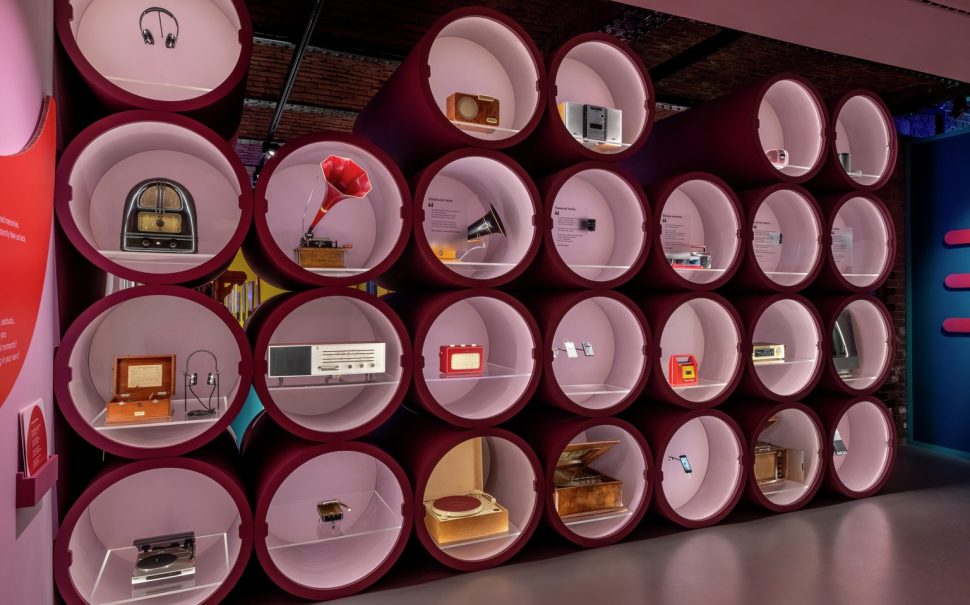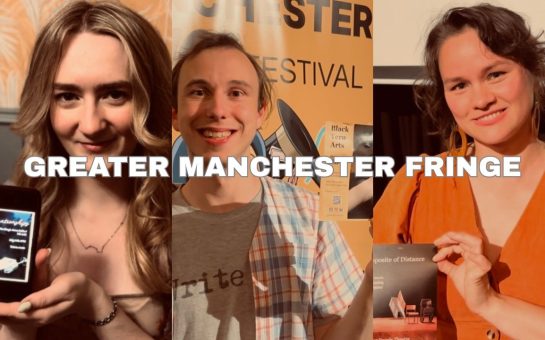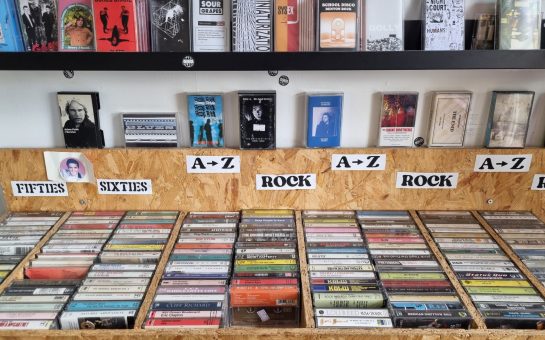It’s hard to know if we can ever get through a day without music. Even when we’re not listening for it, it’s there playing out across the shop floor, spilling out of someone else’s headphones or stuck in the back of your head. Music is unavoidable. Turn It Up: The Power of Music is a new major exhibition at Manchester’s Science and Industry Museum aimed at helping us reassess the presence of music and how it influences our lives.
Our moods dictate what we listen to, or, what we’re listening to can dictate our moods. Presenting an opportunity to reflect on humans’ dependency on music, Turn It Up explores why and how music affects our bodies, brains and emotional state.
For the Science and Industry Museum, this exhibition has been in the works for over a decade. As the curator, Steven Leech, tells me: “We’re always trying to find relatable subjects and relatable science; we always want to communicate that science is accessible. The best way to do that is through things that affect your daily life and music is so connected to everything we do.
“One thing that came out of audience testing is that most people didn’t think of themselves as musical even though we all listen to music, we all consume music- humans are innately musical creatures.”
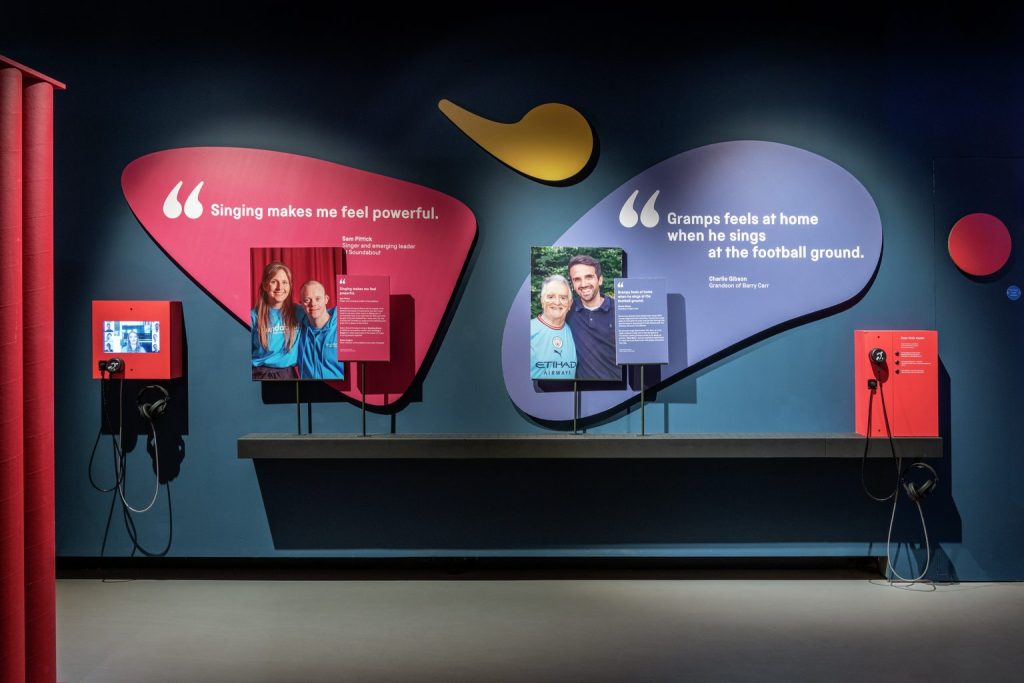
The exhibition becomes a way of proving to people they are musical, or that most of our lives are influenced by the type of music we listen to. One display involves the music choices of Andy Murray, Harry Kane and Hannah Crockford before a big sporting event; the songs that inspire them to work harder and win. Naturally, Kane’s is a Europop track.
The museum has approximately seven million objects in its collection, a medley of scientific materials which included many musical instruments and devices. This archive was used as a launchpad for the exhibition, which opens with a display of audio playback devices from 1895 to the present day.
Facts of musical succession were never the aim, however. To add to the exhibition, the museum also did a callout across Manchester and the UK to loan personal items to display- musical devices attached to people’s memory. The walkman belongs to a woman called Jana, whose brother gifted it to her 33 years ago. Jana has always viewed it as a symbol of her brother’s love because it was the first time she could create a world of her own.
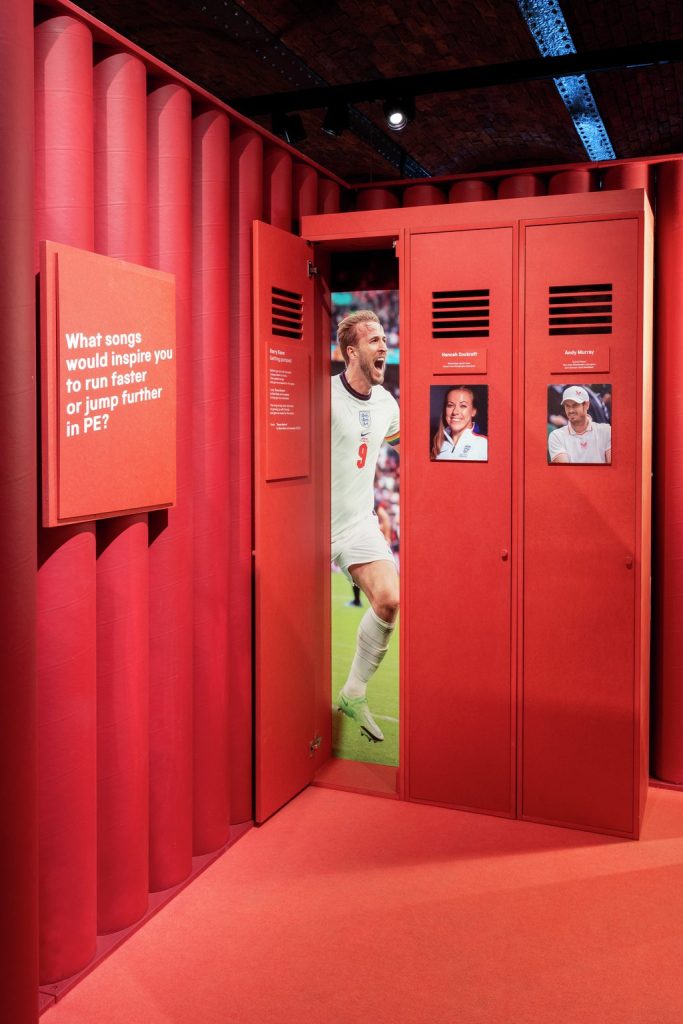
The first half of the exhibition is dedicated to the personal history and scientific catalogue of music, how it enhances people’s lives, and also the accessibility technological advancement can provide. On display is a pair of MiMU gloves. Created by musician Imogen Heap, the gloves enable gestures to control and create electronic music on stage. Ariana Grande has used them, but the gloves have also allowed musician Kris Haplin to continue playing music after his cerebral palsy meant he could no longer play the guitar.
Alongside the instrumental, Turn it Up features an array of different scientific studies on how music can manipulate the way we think, feel and thrive. Does music affect productivity? Can it make us safer drivers? Can it affect the type of wine you buy?
“There is so much research about the science of music and this section is all about how it can change the way we behave in ways we don’t necessarily expect,” says Leech. “We all use music in our everyday lives. So, we set up different, everyday, life scenarios with some key research studies to show some really fascinating and surprising things. Music lifts your mood, it can calm you down, we can use it to enhance sports performance, get up off the couch. We can harness it ourselves, but other people can also harness it.”
Music is manipulated by people to try to get us to respond in a particular way. Steven cites politics as an example of this. Funnily enough, Liz Truss walking out to ‘Moving On Up’ at the Conservative party conference was meant to make us all feel something very different.
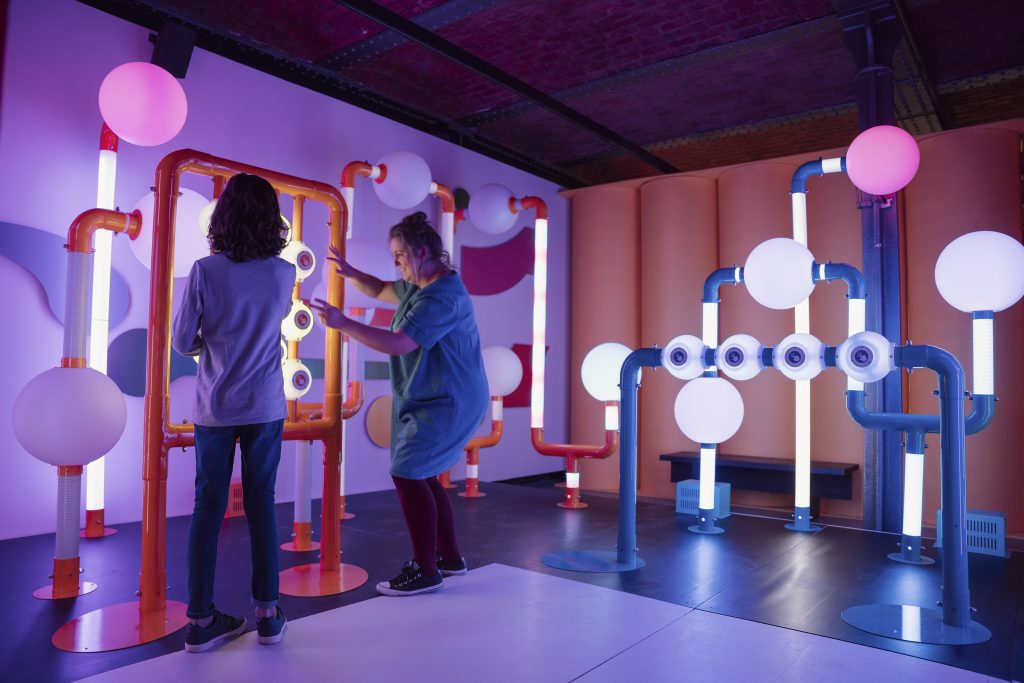
So, it doesn’t always work. But the studies aim to show the seismic impact music can have on our bodies. For example, in dementia sufferers. One display champions Manchester Camerata’s Music In Mind project. The initiative utilises the brain’s connection to music to provide music therapy sessions in care homes:
“It’s all about improving social communication and musical skills. There are patients who were part of this programme, who hadn’t communicated with carers for several months,” explains Leech. “The music therapy sessions over time meant that they could communicate through music and calm and settle their mood.
“Music can’t cure but it can help with symptoms. Studies have shown that music therapy can reduce the need for medication by over 60%.”
Turn It Up proves music is more important than most people believe. It has the ability to influence our lives in ways that might not have been wholly obvious.
Steven concludes: “We want people to come away feeling inspired and creative. One thing I’ve noticed working on this project is I now reflect more on my relationship with music and just it’s a really lovely thing to have that additional layer of thinking and appreciation.
“I want people to be able to feel something similar as well.”
Turn It Up: The Power of Music runs until 21st May 2023.
